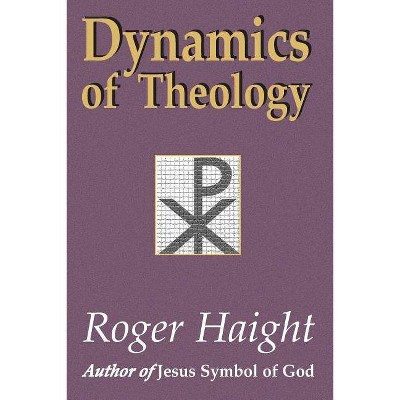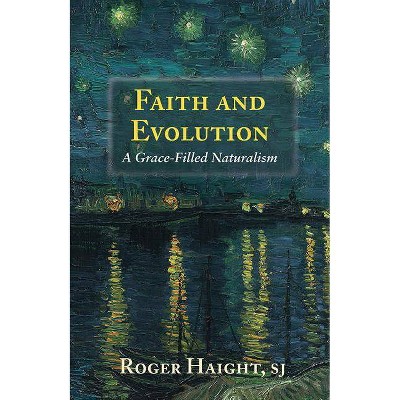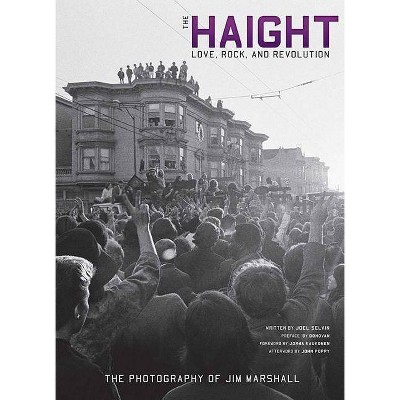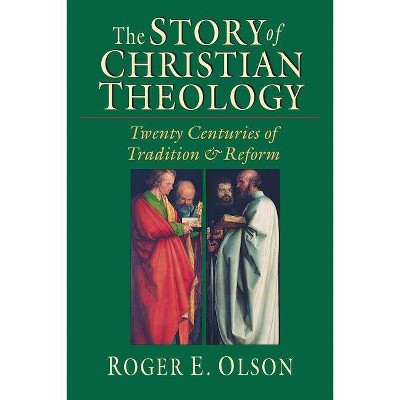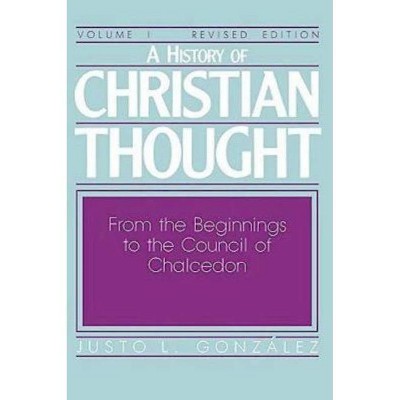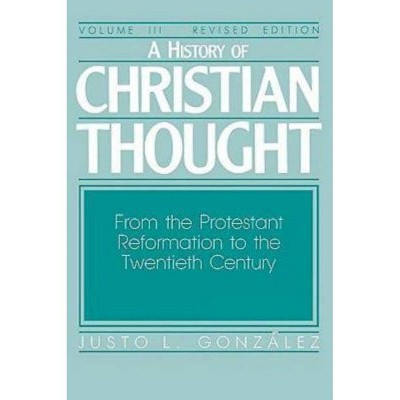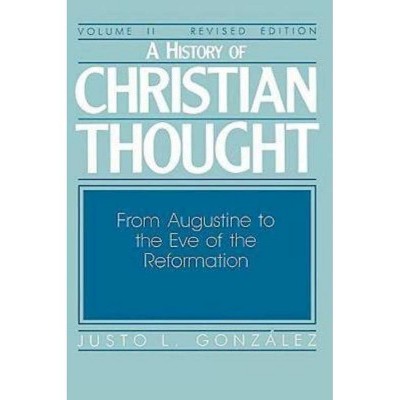Christian Community in History Volume 1 - by Roger Haight (Hardcover)
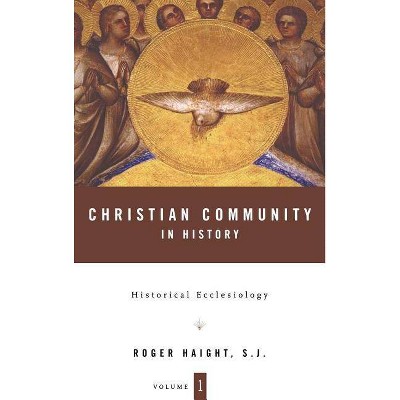
Similar Products
Products of same category from the store
AllProduct info
<p/><br></br><p><b> About the Book </b></p></br></br>Drawing upon the methodology developed in his Dynamics of Theology (1990) and exemplified in Jesus Symbol of God (1999), Roger Haight, in this magisterial work, achieves what he calls an historical ecclesiology, or ecclesiology from below. In contrast to traditional ecclesiology from above, which is abstract, idealist, and ahistorical, ecclesiology from below is concrete, realist, and historically conscious.<p/><br></br><p><b> Book Synopsis </b></p></br></br>Drawing upon the methodology developed in his Dynamics of Theology (1990) and exemplified in Jesus Symbol of God (1999), Roger Haight, in this magisterial work, achieves what he calls an historical ecclesiology, or ecclesiology from below. In contrast to traditional ecclesiology from above, which is abstract, idealist, and ahistorical, ecclesiology from below is concrete, realist, and historically conscious. In this first of two volumes, Haight charts the history of the church's self-understandings from the origins of the church in the Jesus movement to the late Middle Ages. In volume 2 Haight develops a comparative ecclesiology based on the history and diverse theologies of the worldwide Christian movement from the Reformation to the present. While the ultimate focus of the work falls on the structure of the church and its theological self-understanding, it tries to be faithful to the historical, social, and political reality of the church in each period.<p/><br></br><p><b> Review Quotes </b></p></br></br><br>"Haight presupposes a Christian unity in the face of religious pluralism within the historical context of postmodernity..."- Susan K. Wood--Sanford Lakoff<br><br>"Haight proceeds with a historical analysis of the self-constitution of the Church from its origins as a Jesus movement to the heights of medieval Christendom and concludes the volume with the era of conciliarism in the late medieval Church. Several of the essays cast light on the act of reading scripture as a theological exercise, as an encounter with the divine. Thus, a common thread running through this volume is the theological conviction that the prime subject of scriptural interpretation is in fact the self-revealing God. Other contributions offer fascinating explorations of theological interpretation and intertextuality as exemplified with the scripture itself. Haight's study of late medieval ecclesiology sheds light on the all but forgotten influence of conciliarism in healing the Western rift in the papacy. While I find the author's historical study quite insightful. I found this a very helpful, scholarly trek though the major developments in the Roman Catholic Church's self-understanding." -"Toronto" Journal of Theology<br><br>"Roger Haight's two-volume Christian Community in History is an ambitious, multi-layered work that defines the common divisions in ecclesiological approaches. In integrating a history of the church with both theological and social scientific analyses, Haight adopts themes that James Gustafson explored decades ago in Treasure in Earthen Vessels, but which have pretty much disappeared from ecclesiology ever since."--Sanford Lakoff<br><br>"Haight displays a laudable awareness of the complexity of issues.... Ultimately, though, what will give this book landmark status in the discipline of ecclesiology will be its method; it is a truly critical and historical study in a discipline struggling with how to order itself in the contemporary theological world." -"Anglican Theological Review"<br><br>Cover Story Feature on Haight National Catholic Reporter, 2/25/05<br><br>While maintaining the theological nature of his study, Roger Haight s historical ecclesiology lays a sturdy foundation in a historical, sociological analysis of the beginnings and development of the Christian Church from its origin in Jesus of Nazareth to the eve of the Reformation. This is a groundbreaking volume Haight has served all ecclesiologists well by initiating a way of looking at ecclesiology as it develops on the ground, so to speak. He has done it with theological integrity and clear analyses. He challenges us all to understand differences as values and the most appropriate way for the incarnation to continue through human history, honoring both the human and the divine whether in the stable or the palace of the council chamber. Catholic Studies/ http: //www.CatholicBooksReview.org/, 2005<br><p/><br></br><p><b> About the Author </b></p></br></br><b>Roger Haight, SJ</b>, has a PhD from the University of Chicago, USA (1973) and a STL from the Jesuit School of Theology in Chicago, USA (1981). He has taught for over 30 years in Jesuit schools of theology in Chicago, Toronto, the Philippines, and Cambridge, Massachusetts. He has been a visiting professor in France, India, Peru, and Kenya. He is a past president of the Catholic Theological Society of America (1994/95).
Price History
Price Archive shows prices from various stores, lets you see history and find the cheapest. There is no actual sale on the website. For all support, inquiry and suggestion messages communication@pricearchive.us
